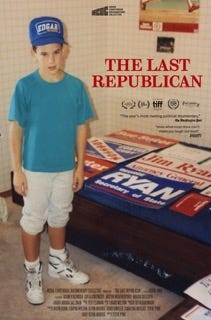When I was young, I was shy, inept, often terrified. But by the time I moved to New York City to be an actor, I'd discovered my magic pill, my "open sesame" to escape insecurity: rehearsal.
What I loved about acting was that I knew what to say and what to do, and by clicking an inner "fuck it" switch before stepping on stage, if I'd done it enough times in rehearsal, I achieved freedom—freedom to act in the moment, because by that time, I had the muscle memory of who my character was, how she spoke, and what her motivations were.
When you ride a bike, your body learns it so well that even if you don't ride for years, you can hop on and glide away.
By the time the Freedom Riders climbed on buses and Black students sat down in whites-only diners in the 1960s, they had rehearsed Gandhi's nonviolent principals. They had a muscle memory of going limp if attacked by segregationist law enforcement. The training overrode the knee-jerk impulse to fight.
Writes pacifist philosopher Richard B. Gregg in the first American book to be written on nonviolent resistance, The Power of Nonviolence (1934), in the chapter entitled "The Need for Training":
The general environment and herd pressure are powerful, constant influences upon every one of us. They will assuredly bend and mold us into the prevailing pattern unless we take specific measures and make special efforts to do otherwise. Nonviolent resistance is different from the usual course of conduct and different from our primitive reactions. It will therefore require efforts specially designed. Regular training is a specially designed and specially potent factor of one's environment. . . .
All of us are creatures of habit. Habits are necessary in order to save energy and enable us to use our minds. If I had to direct consciously every muscle in my legs to act in right tension and right sequence all the time I was walking, I would hardly have time enough even to steer in a certain direction, to say nothing of planning what to do when I got to my destination. If I am active, I have one kind of habits, if lazy I have another kind. Always I have some sort of habits. Hence I must choose which kind of habits I want to have; and, having chosen, I must then subject myself to the process of learning, of habit formation, that will produce that particular kind of habitual action. To be effective, nonviolent resistance must be habitual. To establish such a new habit calls for a somewhat prolonged process of habit formation.
It's unrealistic to imagine all of us undergoing formal nonviolence training, but here is what we all can easily do:
- Imagine dropping to the ground at a demonstration if approached by violent law enforcers. Simply rehearse it in thought.
- Even more important, however, is believing that this is a positive way to react.
- Talk to friends about doing this.
- If enough of us will not fight, perhaps we can emulate Gandhi and the Freedom Fighters.
Just imagine it.
I did, and writing a piece of timely satire that I fervently hoped would become reality is what brought me to Substack: The 70 Million Old People's March
My comment to "sit down en masse" if violence erupted, posted on a 50501 post before a demonstration where there'd been warnings about disrupters, brought some subscribers to my Substack.
Well, with the mass instigation to violence in Los Angeles, the need to "sit down, sit down, sit down" is urgent.
If you're protesting with friends, urge them to rehearse sitting down. Help friends who cannot easily sit down on cue.
Do NOT escalate.
There are more than 330 million of us, said historian Heather Cox Richardson on her podcast yesterday. If we band together, we will build this country into something we all believe in. More than 28,000 people listened to Heather—it happened at lightning speed to a little podcast at one of the fastest-growing independent media centers. No matter how tumultuous things feel, we are already walking into a new and better world.











